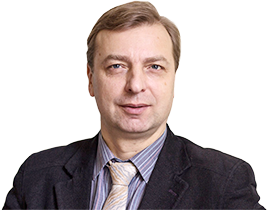The whole thing with the Polish law on the National Institute of Remembrance is primarily connected with Poland’s internal political processes, namely the latest drift of Polish political elites along with the country’s society toward nationalism in its broadest sense: to ideological and economic selfishness, a more aggressive positioning in the international arena and in relations with the European Union, Russia and immediate neighbors. The shift has an objective nature.
That is why no one should have even expected that any statements by the Ukrainian Foreign Ministry or the Verkhovna Rada appeal would be able to influence and change in some way this type of an evolution.
With that in mind, we can say that Ukraine is currently viewed by Poland and its political class as a junior partner in politics, whose interests are not necessarily even worthy of special consideration. This is not a very pleasant reality for Kyiv but it follows from a lot of factors. First, Poland itself has assumed the role of Ukraine’s advocate before the European Union, as well as of an example for Ukraine in the economic and political sense. Secondly, there is such a factor as Ukrainians working in Poland: the very fact of them coming to Poland to get a job, their very status in the Polish society tends to form among the Poles a subconscious perception that Ukraine and Ukrainian citizens are a secondary matter to consider in the context of Polish interests and ambitions.
Moreover, the Poles will expect more such statements from Ukraine, expecting these steps will be similar to that one time when Petro Poroshenko kneeled before the Polish monument to the victims of violence. But Ukraine is unlikely to take such conciliatory steps...
Such developments outline no future prospects for a solution to this conflict that would be acceptable to Ukraine. Most likely, it will somehow be softened or cooled down. Perhaps, this would be through some conciliatory statements on both parts. Moreover, the Poles will expect more such statements from Ukraine, expecting these steps will be similar to that one time when Petro Poroshenko kneeled before the Polish monument to the victims of violence. But Ukraine is unlikely to take such conciliatory steps...
Therefore, the conflict is unlikely to further escalate (on the contrary, there might be attempts to smooth it out in one way or another), but it will drag on until some other kind of perspective and positioning emerges for Poland. That is, the situation may change when the Poles come to a turning point from the conservative and aggressive nationalism to the liberal positioning, more loyal to the world. In the near future, while the struggle between Polish conservatives and the conditional liberal pro-European forces is underway, such a drastic turn is unlikely. But we will keep observing the process ...
Maksym Rozumny is a PhD in Political Science, Head of the Center for Russia Research at the National Institute for Strategic Studies


